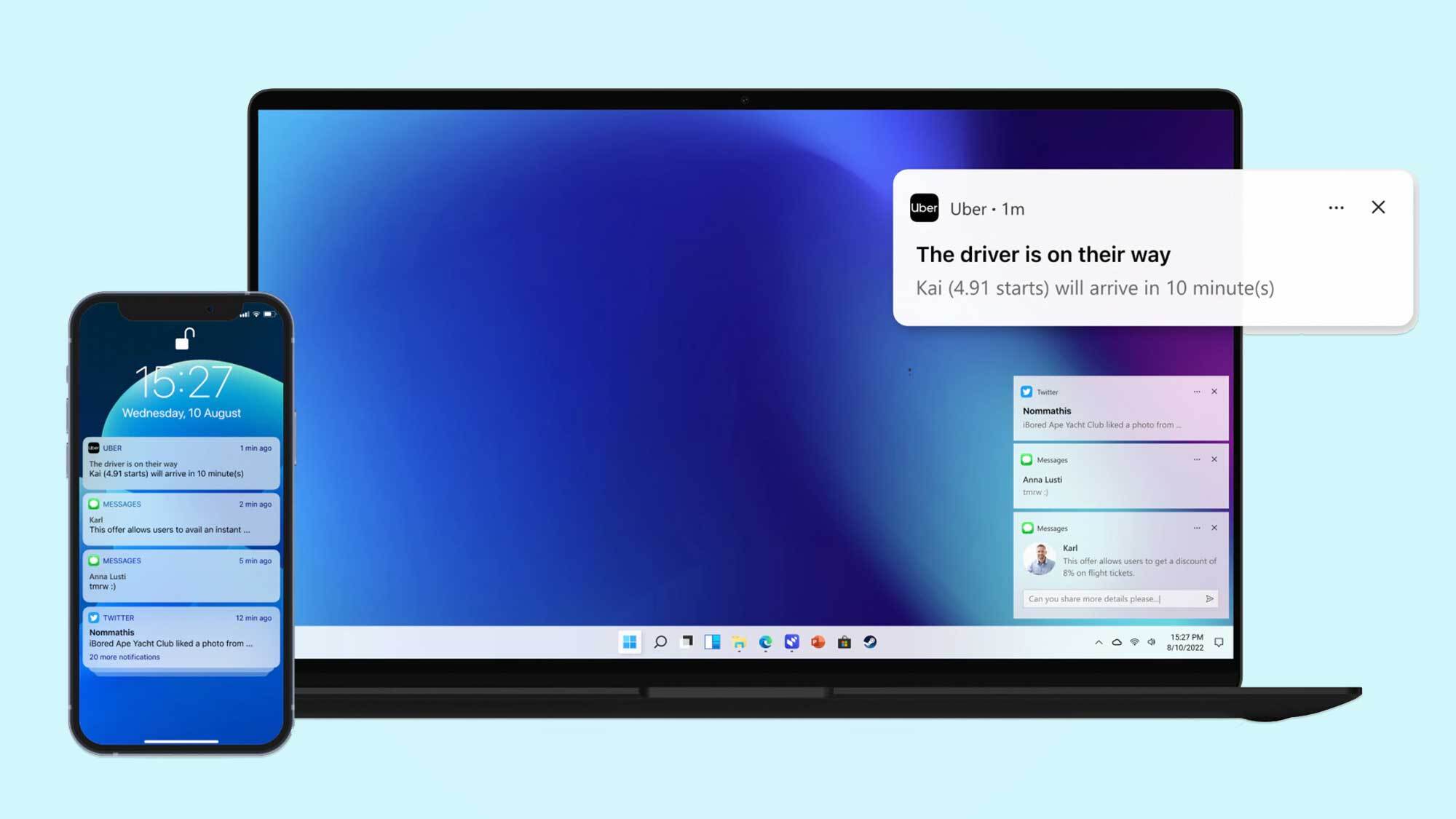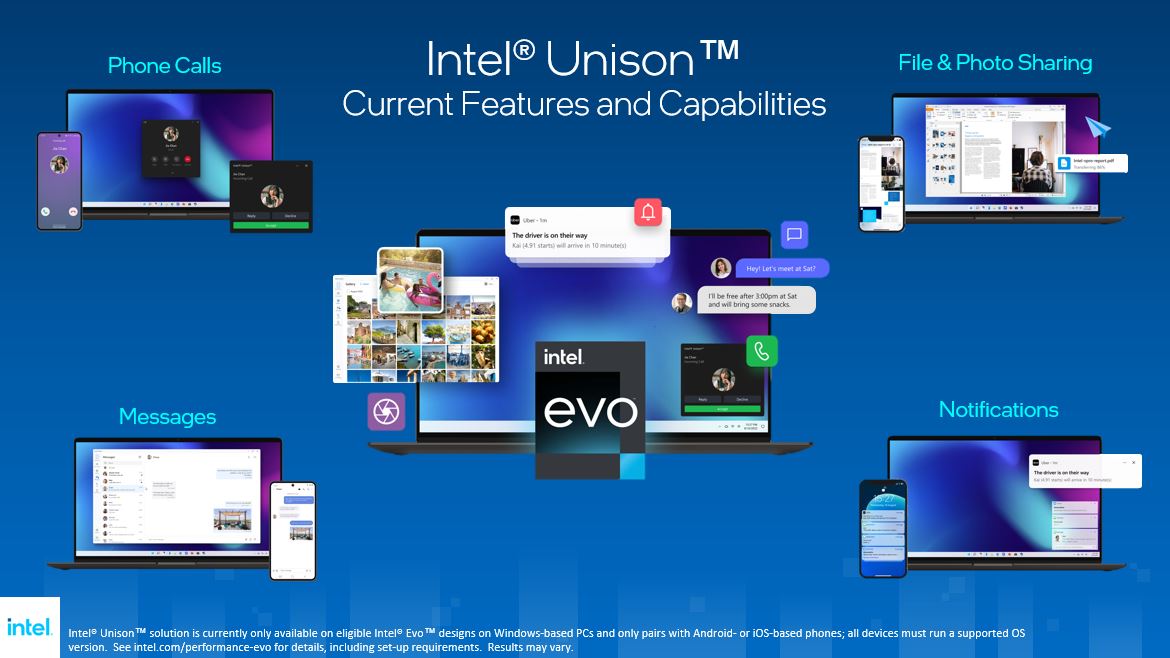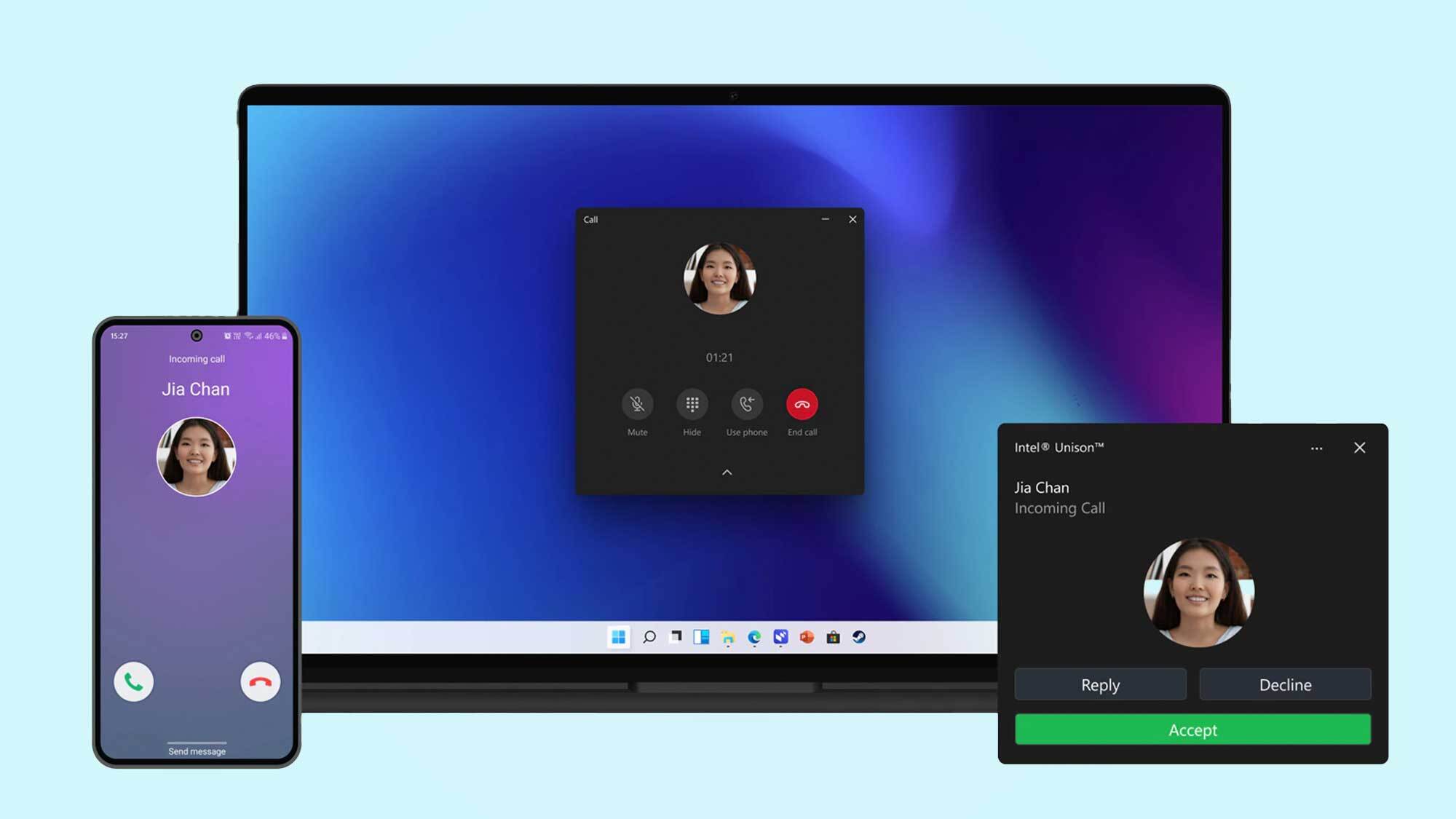Intel’s new Unison app finally lets iPhones sync with Windows — and I couldn’t be more excited
Get ready to text your iOS besties from your Windows laptop

Intel unveiled its new 13th Gen CPU lineup this week, revealing exactly what kind of performance we can expect from the company’s Raptor Lake chips when they start shipping later this year. The numbers, as you might expect, are higher than ever.
But as powerful as these new chips appear to be, they’re not the Intel product I’m most excited to test out this year. No, that honor belongs to the company’s new Unison app, which promises to let users pair their iPhone to their Windows laptop to share files and notifications, receive messages and take phone calls.
It's based on the technology that Intel acquired when it bought smartphone screen-streamer Screenovate in late 2021. You might know Screenovate as the company behind discontinued PC-phone pairing apps Dell Mobile Connect and Alienware Mobile Connect, neither of which I’ve had much luck using with my iPhone 12.
But now that Intel is building on that tech and rolling out its own brand-agnostic spin on PC-phone pairing with Unison, I can’t help but get excited. As an iPhone owner who prefers Windows PCs I’ve long envied the tight integration between iOS and macOS that Mac owners enjoy. Every time I review a new Mac I feel a twinge of jealousy, and when I have to give it up and go back to my trusty Windows machines I can’t help but feel a pang of regret. But not for long.

Unison will debut later this year on select Intel Evo Windows laptops from Acer, Lenovo and HP with 12th Gen Intel chips, followed by more Evo laptops packing the new 13th Gen CPUs next year. Intel Unison itself will be available for download via the Microsoft Store, though it requires you to have Windows 11 with this year's big 22H2 update or later installed as well as a phone running either iOS 15 or Android 9 and above.
Here's how to get the big Windows 11 2022 update if you don't have it yet.
If you buy a laptop that supports it, Unison will allow you to pair your Windows 11 PC with supported Android and iOS phones. While iOS devices won’t be able to take advantage of all of Unison’s capabilities, the core feature set will reportedly work well on either side of the Android/iOS divide.
Sign up to get the BEST of Tom's Guide direct to your inbox.
Get instant access to breaking news, the hottest reviews, great deals and helpful tips.
I’ve long envied the ease with which I can AirDrop photos from my iPhone to a Mac. Windows has needed a similar feature for ages, and with Unison we might finally get it.
There are four core features: Unison will let you make and answer calls, read and respond to text messages, and receive notifications right on your Windows PC. You’ll also be able to share files, which is especially exciting for me since I’ve long envied the ease with which I can AirDrop photos from my iPhone to a Mac. Windows has needed a similar feature for ages, and with Unison we might finally get it.
However, as an iPhone owner it sounds like I won’t be able to access Unison’s full power. In a recent conversation with The Verge, Intel VP of mobile innovation Josh Newman explained that you might notice “subtle differences” when using Unison with an iPhone vs. an Android device. Notably, you won’t be able to take advantage of some text messaging features (like multiparty messages), and you may not be able to act on notifications from third-party apps with as much freedom as you could on Android.

But beggars can’t be choosers, and at this point I’d settle for just a quick, painless way of accessing text messages and photos from my iPhone on my Windows PC. Unison looks like it will finally deliver that sweet, sweet iOS/Windows interoperability I’ve been yearning for.
Outlook
If Unison is as capable as Intel promises, we're about to see the playing field between Windows and macOS get a bit more level. Apple's "walled garden" of devices has long been attractive and foreboding in equal measure, promising unrivaled interoperability between your PC, phone and tablet if you're willing to only buy Apple products. Mix and match, and you lose out on some of the best parts of being an iPhone owner.
Unison won't completely change that, but it will make life a lot easier for those of us who won't choose a side. Perhaps more importantly, it will knock a few holes in the walls around Apple's ecosystem. Of course, we'll have to wait and see how well it works before we know how meaningful those holes really are.

Alex Wawro is a lifelong tech and games enthusiast with more than a decade of experience covering both for outlets like Game Developer, Black Hat, and PC World magazine. A lifelong PC builder, he currently serves as a senior editor at Tom's Guide covering all things computing, from laptops and desktops to keyboards and mice.
